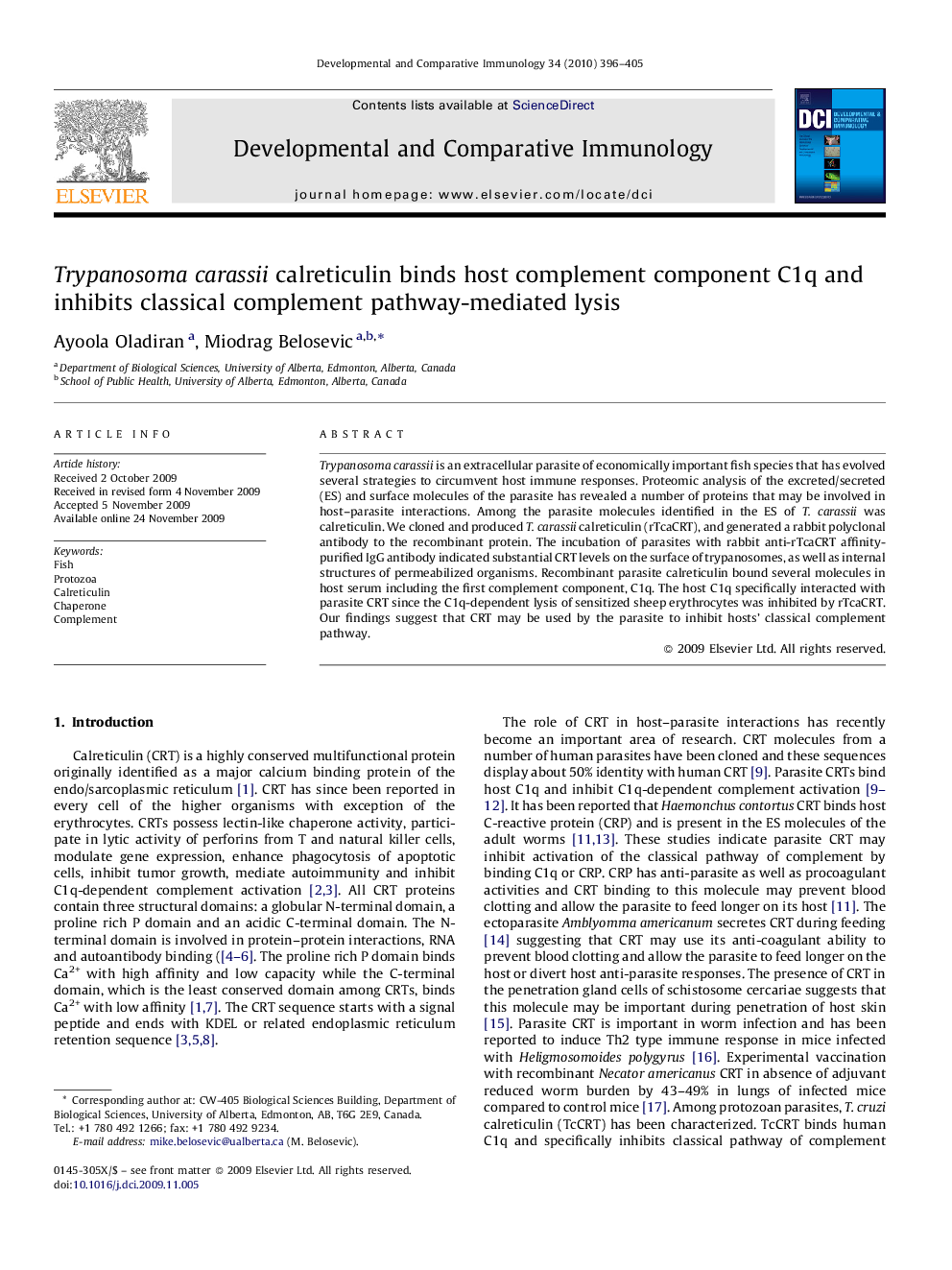| Article ID | Journal | Published Year | Pages | File Type |
|---|---|---|---|---|
| 2430146 | Developmental & Comparative Immunology | 2010 | 10 Pages |
Trypanosoma carassii is an extracellular parasite of economically important fish species that has evolved several strategies to circumvent host immune responses. Proteomic analysis of the excreted/secreted (ES) and surface molecules of the parasite has revealed a number of proteins that may be involved in host–parasite interactions. Among the parasite molecules identified in the ES of T. carassii was calreticulin. We cloned and produced T. carassii calreticulin (rTcaCRT), and generated a rabbit polyclonal antibody to the recombinant protein. The incubation of parasites with rabbit anti-rTcaCRT affinity-purified IgG antibody indicated substantial CRT levels on the surface of trypanosomes, as well as internal structures of permeabilized organisms. Recombinant parasite calreticulin bound several molecules in host serum including the first complement component, C1q. The host C1q specifically interacted with parasite CRT since the C1q-dependent lysis of sensitized sheep erythrocytes was inhibited by rTcaCRT. Our findings suggest that CRT may be used by the parasite to inhibit hosts’ classical complement pathway.
